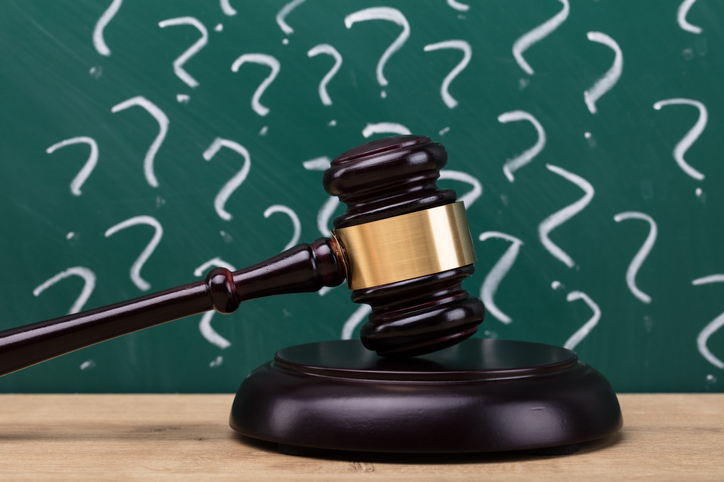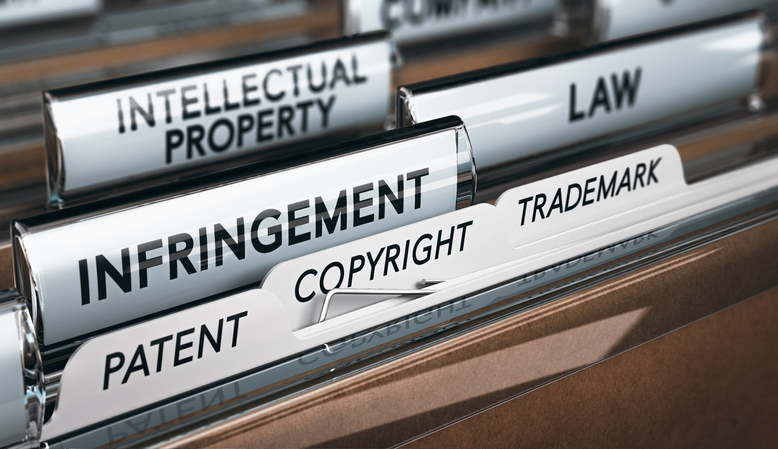 On March 4th, the Supreme Court ruled that copyright owners must wait to file an infringement suit until the Copyright Office has registered the work. The unanimous opinion, authored by Justice Ruth Bader Ginsburg in Fourth Estate Public Benefit Corp. v. Wall-Street.Com, LLC, affirmed the Eleventh Circuit and resolved a split among the circuit courts of appeal. The decision has significant implications for copyright holders and contract or legislation drafters, and comes at a time of change.
On March 4th, the Supreme Court ruled that copyright owners must wait to file an infringement suit until the Copyright Office has registered the work. The unanimous opinion, authored by Justice Ruth Bader Ginsburg in Fourth Estate Public Benefit Corp. v. Wall-Street.Com, LLC, affirmed the Eleventh Circuit and resolved a split among the circuit courts of appeal. The decision has significant implications for copyright holders and contract or legislation drafters, and comes at a time of change.
Summary and Holding of Fourth Estate
 Fourth Estate had licensed certain news content to a website, Wall-Street.com. When Wall-Street's license ended, however, Wall-Street did not remove Forth Estate's content. Fourth Estate had applied for copyright registration of its content, but filed the lawsuit that claimed Wall-Street infringed before registration occurred. The federal judge and the Eleventh Circuit judge dismissed Fourth Estate's suit on that ground, holding that "filing an application does not amount to registration," and that §411(a) of the Copyright Act requires registration before a civil action for infringement of the copyright in any United States work can be instituted. The Supreme Court took up the dispute to resolve a split between the circuit courts – some of which permitted lawsuits to be initiated so long as an application for copyright registration had been submitted, and others that required copyright registration first.
Fourth Estate had licensed certain news content to a website, Wall-Street.com. When Wall-Street's license ended, however, Wall-Street did not remove Forth Estate's content. Fourth Estate had applied for copyright registration of its content, but filed the lawsuit that claimed Wall-Street infringed before registration occurred. The federal judge and the Eleventh Circuit judge dismissed Fourth Estate's suit on that ground, holding that "filing an application does not amount to registration," and that §411(a) of the Copyright Act requires registration before a civil action for infringement of the copyright in any United States work can be instituted. The Supreme Court took up the dispute to resolve a split between the circuit courts – some of which permitted lawsuits to be initiated so long as an application for copyright registration had been submitted, and others that required copyright registration first.
Numerous amicus briefs were filed in support of Fourth Estate, noting that requiring registration first would be inconsistent with Berne Convention goals and other aspects of the Copyright Act, and arguing that the current considerable processing delays or costs for expedited service at the Copyright Office unfairly blocks copyright owners from stopping damaging infringement.
 Interestingly, the Supreme Court’s ruling came down to plain language and procedure. Sections 408(f)(2) (preregistration option), 410 (application separate from registration), 411(a) (registration required), and 411(c) (live broadcast exception) of the Copyright Act, and the circumstances and results of the several times Congress addressed the Copyright Act’s registration requirements (in 1988, 1993, and 2005) -- when taken together, all are best understood when the step of applying for copyright registration is distinct from receiving registration from the Copyright Office. The Supreme Court thus held that “[t]he registration approach reflects the only satisfactory reading of §411(a)’s text.”
Interestingly, the Supreme Court’s ruling came down to plain language and procedure. Sections 408(f)(2) (preregistration option), 410 (application separate from registration), 411(a) (registration required), and 411(c) (live broadcast exception) of the Copyright Act, and the circumstances and results of the several times Congress addressed the Copyright Act’s registration requirements (in 1988, 1993, and 2005) -- when taken together, all are best understood when the step of applying for copyright registration is distinct from receiving registration from the Copyright Office. The Supreme Court thus held that “[t]he registration approach reflects the only satisfactory reading of §411(a)’s text.”
Resolution of Circuit Split but Questions Remain
 The Supreme Court’s decision in Fourth Estate stands very clear on one point: “Registration occurs, and a copyright claimant may commence an infringement suit, when the Copyright Office registers a copyright.” This resolves the circuit split in favor of the Tenth and Eleventh circuits’ “registration” approach, and does away with the Fifth and Ninth circuits’ “application” approach.
The Supreme Court’s decision in Fourth Estate stands very clear on one point: “Registration occurs, and a copyright claimant may commence an infringement suit, when the Copyright Office registers a copyright.” This resolves the circuit split in favor of the Tenth and Eleventh circuits’ “registration” approach, and does away with the Fifth and Ninth circuits’ “application” approach.
The Fourth Estate decision also clearly reaffirms the role of the Supreme Court, which is to interpret the law but not to make or fix it. The decision frankly acknowledges that the Copyright Act’s “statutory scheme has not worked as Congress likely envisioned” as it parses through years of legislative history and semantic choices. It also laments the substantial delays in the Copyright Office’s processing times for applications that are “attributable, in large measure, to staffing and budgetary shortages that Congress can alleviate, but courts cannot cure.” Stating its own limitations, the decision notes: “Unfortunate as the current administrative lag may be, that factor does not allow us to revise §411(a)’s congressionally composed text.”
While the Supreme Court’s Fourth Estate decision is tremendously helpful on the one issue of the circuit split, it does not fully resolve the problems identified by Fourth Estate and the amicus briefs. The additional issues of Copyright Office delay, disadvantages and Berne Convention compliance for U.S. authors, and whether copyrightability can be reviewed de novo in copyright litigation remain.
Legislation, Administrative Changes, and Foreign Options
 The unanswered questions that came out of the Fourth Estate ruling are now issues Congress and the Copyright Office itself could take the opportunity to address. As in the past, Congress could review and revise existing language in the Copyright Act to further address the Berne Convention issues and perhaps permit additional media to be granted an exception from the registration requirement as it did for live broadcasts.
The unanswered questions that came out of the Fourth Estate ruling are now issues Congress and the Copyright Office itself could take the opportunity to address. As in the past, Congress could review and revise existing language in the Copyright Act to further address the Berne Convention issues and perhaps permit additional media to be granted an exception from the registration requirement as it did for live broadcasts.
The Copyright Office does seem to be trying to address the delay problem. Although more could be done, as of 15 March 2019, they have introduced a revised system permitting up to 10 unpublished works to be registered via a single application. This development can cut down on costs for applicants and is hoped to improve the efficiency of the registration process.
U.S. copyright owners should also consider the benefits (and possible risks) of registering their works in jurisdictions where the review process is considerably shorter. For example, the turnaround time from copyright application to registration in Canada is typically from five to seven business days.
While the Fourth Estate holding has now cleared the path to working toward resolving the remaining issues through lawmaking and revisions, this case serves also as a reminder that complex situations such as this require petitioners to work within the multi-faceted system in an effort to find relief.
Uptick Expected in Copyright Applications…and Litigation
 The outcome of the Fourth Estate decision is expected to boost the number of copyright applications submitted to the Copyright Office. The uptick may result in further administrative or legislative solutions to the current burden of delays and costs borne by copyright holders, and perhaps increasing conformity across avenues of relief, including DMCA takedowns. The decision is also expected to have a substantial effect on copyright litigation as well -- both efforts to obtain injunctive relief, and for damages resulting from infringement occurring even before copyright registration. Accordingly, copyright owners should consider all options for obtaining expedited copyright registration, and authors and owners are encouraged to review best practices, procedures and options with copyright attorneys to find a practical approach to protect their copyright rights.
The outcome of the Fourth Estate decision is expected to boost the number of copyright applications submitted to the Copyright Office. The uptick may result in further administrative or legislative solutions to the current burden of delays and costs borne by copyright holders, and perhaps increasing conformity across avenues of relief, including DMCA takedowns. The decision is also expected to have a substantial effect on copyright litigation as well -- both efforts to obtain injunctive relief, and for damages resulting from infringement occurring even before copyright registration. Accordingly, copyright owners should consider all options for obtaining expedited copyright registration, and authors and owners are encouraged to review best practices, procedures and options with copyright attorneys to find a practical approach to protect their copyright rights.
If you have any questions on any of the above, please feel free to contact me, Claire Hawkins at chawkins@gsblaw.com or any member of GSB’s Intellectual Property Group.
